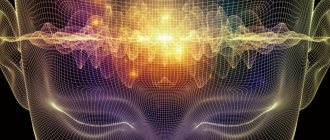Definition of moral principles
| Moral principles are a set of moral rules that apply to an individual, a group of individuals, or society as a whole. Most often acquired from childhood. |
In other words, moral principles are requirements that must be strictly followed in all life situations.
The formation of moral principles is strongly influenced by upbringing, family relationships, religion, environment, and culture. What seemed unacceptable and reprehensible some time ago may become the norm and not cause condemnation. And vice versa: some things that were considered ordinary may become completely unacceptable.
It is moral principles that allow a person to choose the right path in life and influence decision-making in accordance with his conscience throughout his life, giving him a general direction for his activities.
Every person goes through several stages of moral development at different stages of his life, and his own moral principles can change under the influence of external factors.
Moral principles are something that is formed and can change throughout life, is relevant for a particular society and for each person separately, without these principles the existence of a harmonious society is impossible.
Rules of morality
There are many rules that characterize morality, and we follow them almost without noticing it. Acting at the subconscious level, a person brings his mood, achievements, victories and much more into the world. Such formulations very closely embody what morality means in all its incarnations. Relationships in the world should be based on reciprocity for a comfortable existence.
By accepting these conditions, a person can learn to be kinder, more sociable and responsive, and a society consisting of such people will be similar to the ideal. Some countries are achieving this situation, and their number of crimes is significantly reduced, orphanages are closed as unnecessary, and so on. In addition to the golden rule, you can consider others, such as:
- sincere conversations;
- calling by name;
- respect;
- attention;
- smile;
- good nature.
What does the “golden” rule of morality sound like?
The basis of peace and culture is the golden rule of morality, which sounds like this: treat people as you would like them to treat you, or do not do to others what you do not want to receive for yourself. Unfortunately, not everyone is able to follow this, and this leads to an increase in the number of crimes and aggression in society. The rule tells people how to behave in any situation; you just have to ask yourself the question, how would you like it? The most important thing is that the solution to the problem is not dictated by society, but by the person himself.
History of the term "morality"
It is impossible to say exactly when society first began to think about what morality is.
The earliest source that describes this concept is the parables of Solomon (mid-10th century BC). During Homer's life, society was well aware of conscience, virtue, honor, and legality.
Confucius (6th–5th centuries BC) wrote about issues of morality and morality, who considered mercy, philanthropy and integrity to be the most important universal values.
Cicero made a great contribution to the formation of the concept of morality. He talked a lot about how ethics, morality and law relate to each other. He sought to show that it is impossible to separate the concepts of law and morality, since together they make it possible to rid society of chaos and create order. Of course, Cicero, who lived in the 1st century BC, was far from a pioneer on this topic. But it was he who introduced the definition of morality that we still rely on today.
Pythagoras, Socrates and Plato also raised questions of morality in their contemporary society and gave examples of highly moral behavior by the standards of that time.
The term “morality” originates from the Latin moralitas, moralis, mores - tradition, folk custom, behavior, and later - disposition, character, mores. Ancient Roman authors translated the word as “conformity to good morals.” In the 18th century, a similar word was used in French and meant “equal to the law, legitimate.” The word “morality” also came into Russian through French (la morale) in the 18th century.
Prepare for the Unified State Exam in Social Studies with courses from Skysmart - fun and effective!
Approaches to understanding morality
There are four approaches to understanding morality:
- Religious. Its adherents believed that the source of morality is the absolute. To curb his passions, a person is forced to turn to God for help. Faith in him helps to follow the absolute rules of behavior.
- Evolutionary. In the process of natural selection, a person acquires and inherits a certain line of behavior. According to this version, morality comes from the instinct of sociability of people.
- Naturalistic. The root cause of morality is nature. The human mind defines natural moral values as good or evil.
- Cultural. Morality is one of the elements of society's culture.
Basic functions of morality
Morality performs the following functions:
- The integrative function of morality is to harmonize the internal state of a person.
- The evaluative function of morality is associated with a person’s ability to determine the criteria for his own and others’ actions based on the concepts of good and evil. Moral assessment is expressed in praise, blame, agreement, etc.
- The regulatory function of morality determines activities taking into account the needs of surrounding people and the entire society. Morality establishes social norms to be observed, imposes sanctions, and maintains rules of behavior.
- The controlling function of morality is checking the compliance of a person’s behavior with the norms established in society. Self-control based on the judgment of others or conscience.
- The educational function of morality is a mechanism for learning to live in society: how to learn to reckon with other people. Morality teaches us to understand and accept their needs and interests, shapes the individual’s personality, his worldview and personal concepts of good and evil.
- The value-orienting function of morality forms life values and moral goals for each person, lays down the concept of the meaning of life.
What is immoral behavior?
This is a violation of moral principles, expressed in actions. Immoral behavior is directly related to weak spiritual and moral attitudes of the individual. Another reason is commitment to human vices. If an individual behaves immorally, it means that his parents and society did not instill in him certain standards of behavior that are considered moral in society. Further circumstances of life (the environment or being at the bottom of the social ladder) developed in him his own internal moral consciousness. It began to contradict morality in society.
Classification of moral principles
A person recognizes moral principles as behavior that determines the nature of relationships in society.
The following moral principles are distinguished:
- The principle of humanism is the highest human value, which is expressed in love for one’s neighbor, protection of dignity, recognition of the right to a happy existence and self-realization.
- The principle of altruism is a moral norm that calls for providing selfless support to those in need.
- The principle of collectivism is the possibility of coexistence to achieve a common goal. It consists of cooperation, mutual assistance, and democracy.
- The principle of justice is equal rights and freedoms for all members of society. Social and economic benefits are available to everyone without exception and are distributed depending on the amount of effort on the part of each person.
- The principle of mercy is the willingness to sympathize and help those who ask, regardless of social status and appearance.
- The principle of peacefulness is based on the recognition of human life as the highest value. It assumes respect for national and regional characteristics and state sovereignty. Peacefulness helps maintain social order and mutual understanding between generations.
- The principle of patriotism is love for the Motherland, care for it, readiness to defend it from enemies, pride in state achievements, respect for history and respect for national property.
- The principle of tolerance means respect, acceptance and correct understanding of the rich diversity of cultures of our world, forms of self-expression and ways of manifesting human individuality. In other words, accepting the diversity of cultures without the desire to suppress or correct them.
Text of the book “Ethics: A Cheat Sheet”
9. ETHICAL MEANING OF HAPPINESS
Happiness
- a state of lasting satisfaction from the experienced pleasure and fullness of life. It accompanies every moment of human life as a manifestation of the highest value. Therefore, it is closely connected with the fate of a person. It was in the sense of the goal of all human aspirations that happiness was understood in the era of antiquity.
Eudaimonism
– an ethical direction that considers happiness as the motive and goal of all human aspirations. Adherents of eudaimonism considered happy the person whose physical and spiritual abilities could develop unhindered. Representatives of eudaimonism at different times were Socrates, Epicurus, B. Spinoza, G.V. Leibniz, L. Feuerbach, G. Spencer and others. The foundations of the doctrine of happiness were laid and developed by the ancient schools of the Hellenistic era: the Stoics, Epicureans and skeptics.
Happiness
- dispassion and ascetic lifestyle, accompanied by renunciation of earthly feelings.
This is the essence of the Stoics' understanding of the nature of happiness.
The main principle of a happy life, in their opinion, should be apathy. Apathy is independence from feelings and passions. Therefore, a happy lifestyle is the destiny of a sage. He is always devoted to reason, and his statements are correct and impartial.
Happiness
– freedom from passions and fearlessness before death and mortal pain.
This was the ideal of a happy life for the skeptics.
It was based on the principle of ataraxy.
Ataraxia is a moral principle according to which happiness lies in peace of mind and serenity. The path to happiness lies through following another principle - the principle of epoch. Epoche
- abstinence from judgment, followed by calmness.
Happiness
- the desire for pleasure and pleasure.
This is the understanding of happiness by the Epicureans,
who distinguished two types of happiness:
1) the highest happiness belonging to the gods, it cannot be increased;
2) happiness that is achievable for a person and allows for multiplication.
The Epicureans did not see in every pleasure the guarantee of a person’s future happiness, but only in those that correspond to his rational nature. Happiness is impossible for a person who lives unreasonably, since reason is the highest good for a person. The moral meaning of happiness consists in a person’s desire for joy, pleasures and pleasures, but only those that do not harm his spiritual and physical health. Happiness is driven by human desires, but not all of them are morally justified and are often achieved to the detriment of the person himself and the people around him. Otherwise, the pursuit of happiness turns into unhappiness. Misfortune
– a character trait of a person that leads to mistakes, misdeeds, adversity, illness or loss of loved ones. The pursuit of pleasure does not guarantee happiness and, on the contrary, self-denial is a closer path to it. Ultimately, happiness results from living a virtuous and morally consistent life.
10. JUSTICE AS A REGULATORY PRINCIPLE OF PUBLIC AND INDIVIDUAL RELATIONS
Justice
- a principle that regulates the relationship between people as members of society regarding the distribution of social values, which are freedom, favorable opportunities, income, signs of prestige and respect.
Aristotle,
and along with it, all ethical thought distinguishes between two types of justice:
1) distributive justice
– distribution of honors, property and other material benefits among members of society according to merit and in proportion to merit;
2) fairness associated with exchange
– equalization of the parties involved in the exchange, regardless of their merits.
In both cases, there is implied agreement between members of society regarding the principles of their lives. These principles may change, but the understanding of justice depends on what rules have been established in a given society. Their violation is perceived as injustice.
Justice
- a principle of individual behavior that sets a limit to arbitrariness. It requires respect for the rights of another person, non-violation of the person and her property. The main requirement of justice is respect for the rights and dignity of people. It guides a person to fulfill his obligations to other people. Obligations can be presented in the form of legal laws, constitutional rights, moral ideas.
The distinction between justice and injustice is established individually for each individual. This issue is discussed in detail in Plato's dialogue Gorgias. Justice
is considered as the equality of people before each other, expressed in the commission of actions that do not violate the rights and freedoms of other people.
To be fair or to be punished for injustice is regarded as happiness for a person, because the one who acts unjustly and remains unpunished serves evil and does not even have an idea of \u200b\u200bwhat the true good is. By incurring punishment, a person gets rid of the corruption that darkens the soul. In this sense, it is better to endure injustice than to inflict it on other people. Injustice
is the greatest evil for the one who commits it, because it not only makes him morally worse, but also deprives him of the opportunity to correct his own moral mistakes. For the same reason, injustice cannot be justified either by law or custom.
11. BEHAVIORAL ANALOGUES OF MORALITY IN LIVING NATURE
The theory of the English naturalist Charles Darwin (1809–1882) about the evolutionary origin of species through natural selection led to the development of a new approach to the problem of the origin of morality and ethics. Darwin explains the origin of moral feeling from feelings of sociability, which exist instinctively or are innate in lower animals. Sociability instinct
- a feeling that gives pleasure from being in the company of individuals similar to oneself and the empathy or sympathy felt towards them.
Sympathy
is a feeling of camaraderie and mutual experience of the same impressions. To varying degrees, developed intelligence prompts animals and also humans to feel shame and dissatisfaction due to the fact that their social instinct has given way to other instincts. The reason for the strengthening of the social instinct and mutual sympathy is habit. From observations carried out on the lives of animals, it became obvious that they are capable of sympathy not only in pleasures, but also in misfortunes. From here the idea of the existence of mutual assistance among animals as the basis of morality is formed. Despite man's need to develop his own individuality and the insignificant influence of social instincts on his life, he is a sociable creature. The ability to sympathize with one's relatives is preserved in the human subconscious and is supported by reason, experience and the desire for approval from other people.
Darwin came to the conclusion about social instinct as the source of development of all moral principles. Its development was greatly facilitated by natural selection due to its usefulness for the preservation and development of the species. Natural selection comes into conflict with the instinct of self-preservation and the instinct of affection of parents for their offspring and gains the upper hand. However, this does not prevent the interconnection and mutual development of these instincts. In human society, the power of the social instinct is most evident due to the ability of people to experience feelings of guilt. Thus, a person who yielded to the natural instinct of self-preservation and did not sacrifice his life to save another person experiences pangs of conscience.
Moral conscience
- a feeling testifying to our past misdeeds, the memory of which makes us feel a feeling of displeasure. Conscience is the result of a struggle in which the no less strong and no less constant personal instinct gives way to the more constant social instinct. Darwin, who knew nature, substantiated the argument that the social instinct is stronger than the personal instinct of self-preservation. This is explained by the fact that it is maintained by natural selection, and those species in which it weakened were mercilessly exterminated. Mutual assistance within the species became the main reason for its progressive development.
12. MAIN DIRECTIONS OF THE TEACHING ABOUT THE ORIGIN AND NATURE OF MORALITY
In the history of ethics, three main approaches to the origin and nature of morality can be distinguished.
1. Religious ethics
affirms the Divinity as the source of the emergence of moral values - norms, principles, ideals, basic ethical categories and a person’s ability to follow them. God turns out to be a necessary authority that gives morality its universal, absolute and unchanging character and spiritual meaning. The divine origin of morality is explained by the fact that people, due to their bodily and sensory nature, cannot independently curb desires and passions and turn to God for help. Faith in God helps to follow moral principles and develop ideas about true humanity. At the same time, man is the highest creation of God, and in him there is a Divine principle, or the tendency to follow moral standards.
2. Naturalistic ethics
deduces moral requirements and norms from nature as a whole and human nature in particular. However, it is impossible to find the criteria of morality in nature without the help of reason, since humans are characterized by both vices and virtues. Reason allows us to determine the measure and value of what leads a person to good and what to evil. In modern times, discussions about the moral nature of man diverge. Thus, T Hobbes saw in the natural nature of man only evil, which should be curbed by a social contract and laws. J. - J. Rousseau and G. Grotius, on the contrary, saw precisely in the natural nature of man the guarantee of morality and social order. Ethics received a strong natural scientific foundation after Charles Darwin created the theory of the evolutionary development of man and nature in their organic relationship. In nature, through natural selection on the principle of biological expediency, the diversity of nature is generated, including man with his moral abilities. In the processes of adaptation to changed conditions and natural selection, individuals with biologically and morally useful properties survive. They pass on their skills to subsequent generations. Morality acquired biological value and expediency.
3. Socio-historical ethics
in the question of the emergence and formation of morality, it proceeds from the decisive role of labor and social production. Labor activity led to the emergence of human speech and consciousness, which contributed to the humanization of primitive society. The unification of people into a single community occurs on the basis of the division of labor and the exchange of its results. In the process of labor, a person transforms his own nature and creates conditions for creative activity and development. Socio-historical ethics views morality as a product of social development, the basis of which is social needs and interests.
13. MORAL IDEAL AND HIERARCHY OF VALUES
Moral consciousness
– a set of moral concepts and values characteristic of a certain historical era.
It is characterized by the ability to make everything the object of moral judgment and evaluation, expresses the general historical need for recognition of the individual in its specific historical manifestation and is based on the moral ideal of the individual. A moral ideal
is the embodiment of the idea of a morally impeccable person who combines moral virtues and acts as a role model.
In the moral consciousness of an individual, the moral ideal appears as a critical negation of imperfect reality and its spiritual overcoming. It creates conditions for the spiritual development of the individual based on the unification of moral norms as high goals. Thanks to this, a correct assessment of moral values and the validity of an individual’s appeal to them in their activities are possible. The moral ideal
is the result of a general moral idealization, which expresses critical dissatisfaction with reality and the unwillingness of morality to come to terms with its imperfections.
Moral idealization finds expression in the desire of moral consciousness for a better, ideal type of relationship between people. Therefore, the moral ideal sets a value orientation for people’s actions, expressing the initial position of a person, which he adheres to throughout his life. The value orientation of an individual is determined by the value system. Value
is everything that is recognized by the most significant individual or society.
The system of moral values
includes the following concepts:
1) good
- everything positively assessed by moral consciousness in relation to the principles of humanity;
2) moral duty
- a person’s acceptance of moral requirements and values as a personal task.
Moral duty orients a person towards the interests of the group, but they do not always coincide with his personal interests and do not always correspond to moral standards; 3) conscience
- a person’s ability to bear moral obligations, control and evaluate his behavior.
Guided by his own conscience, a person takes responsibility for his own ideas about good and evil, justice and duty; 4) dignity
- the expression of ideas about the value of a person as a moral person.
It expresses the requirement of a respectful and friendly attitude towards a person, recognition of his freedom in self-determination and equality in rights; 5) honor
- recognition and respect of a person in connection with his merits.
Honor is based on a person's integrity and respect for the rights of others; 6) justice
- an expression of the principle of obligation in human relationships, which corresponds to the purpose of a person.
A person who adheres to moral standards is able to achieve happiness; 7) happiness
- awareness of a person’s lifestyle that brings him satisfaction;
 the meaning of life
the meaning of life
is the recognition of the significance of human life and the determination of its goals.
14. NATURE, FEATURES AND CRITERIA OF MORAL EVALUATION
Moral assessment
- approval or condemnation by moral consciousness of phenomena of social and individual life.
Moral assessment allows us to establish the compliance of social relations and human life with moral requirements. When making a moral assessment, a person sometimes acts unconsciously, guided by emotions, feelings, intuition, subjective life experience or passions. However, in these actions he is based on general moral values that he had previously mastered. Moral assessment
is a person’s conscious value attitude towards reality and the establishment of its moral meaning.
When analyzing a moral assessment, the following elements are distinguished:
1) subject of moral assessment
- an individual or group of people who have a stable public opinion, a collective judgment on socially significant issues. The subject expresses judgments and actively influences individual and social life;
2) object of moral evaluation
- all phenomena of human life that are subject to moral comprehension. Morality sets the humanistic character of the objects being assessed. Therefore, the object of moral assessment is the moral activity and actions of a person, as well as the spheres of economics, politics, law and spiritual culture of society.
Moral assessment has an indirect impact on the system of social relations, shapes people’s attitudes towards social events and changes their activities. Moral assessment also concerns moral requirements and values due to the self-awareness of the individual and his independent decision-making.
The nature and form of moral assessment
- the reaction of approval or condemnation of an individual to ongoing phenomena of social life.
It is expressed in the form of encouraging or disapproving actions, sympathy and support, displeasure or criticism. Moral evaluation is expressed in value judgments such as honest, decent, courageous, modest, hypocritical, indifferent, generous or hospitable. The basis of moral assessment
is the values and forms of expression of moral requirements that are established in relation to the motives and attitudes of behavior, character traits, actions of a person, his life position and social life in general.
These include norms and principles of morality, moral ideals, concepts of goodness, justice, honor, dignity and duty. Criteria for moral evaluation
are concepts that characterize the moral value of individual and social life. A person shows his moral characteristics in relation to other people with whom he enters into relationships in society. Therefore, the highest and absolute criterion of moral assessment is the socio-historical necessity of developing the values of human life, recognizing and ensuring individual rights and freedoms.
15. MORAL ACTIVITY, MORAL ACTION AND RELATIONSHIPS
Moral activity
– an indicator of the social significance of human activity.
It is manifested in the provision of humanitarian assistance, moral preaching, moral education of the individual and love for people. It is subject to moral requirements and is therefore subject to moral evaluation. Moral activity consists of actions that have their own structure. A moral act
is socially significant human behavior performed consciously and in accordance with personal motivations.
For the moral assessment of an act, i.e., establishing its moral quality, the value-substantive characteristics of the action are important. The assessment covers the act in its entirety and takes into account the conditions of its commission. Therefore, it is important to know how the moral assessment of an action develops. The moral value of an action increases as the obstacle to its completion and success in overcoming it increases. An act deserves high praise if it required the maximum application of will, skill and perseverance from a person to perform it. An action consists of its motivation, intention and purpose of action, the means to achieve it and the result obtained. Intentions and goals
express a person’s ideas about the subject of his action and form the method of its commission and the result.
The basis of a moral act is motive. Moral motive
is the personal motivation of an individual to commit an act. It is formed under the influence of society, but is recognized by the individual as part of his own consciousness, which is expressed in the desire to make his own contribution to ensuring a successful resolution of the conflict and in the desire to help the parties involved in it. The moral motive consists of a person’s ideal desire and desire for a moral act.
Content of a moral act
– actions of the individual, means, conditions, circumstances of achieving moral goals and their results.
The result of a moral act
is an indicator of the moral value of the act for society and its benefits for the spiritual development of the individual.
Moral relations
– a set of social relations motivated by moral values and goals. Unlike other social relations, moral relations are expressed in the form of values and form the basis of social relations that are included in all public spheres - economics, politics and culture. They carry morally valuable content and determine people’s behavior. In moral relations, a person takes an active position, since they arise as a result of his activities, and a passive one, since he is obliged to master the system of moral norms and values accepted in society. Moral relations form a person’s understanding of the public good – the conditions for human solidarity.
16. SOCIAL SIGNIFICANCE OF MORAL FUNCTIONS
Morality
- an internal regulator of human behavior, setting him up to comply with the principles of humanity.
Therefore, the purpose of morality is the spiritual mastery of reality. It is necessary as a reliable means of orienting a person in the sphere of social relations and values, helps regulate human behavior and the entire system of social relations in order to maintain cooperation and cohesion of society. The purpose of morality
finds concrete expression in its functions:
1) regulatory function
– the ability of morality to harmonize social relations and form a morally mature personality in accordance with moral values and requirements. Values and moral requirements act as a way for society to understand its needs and the need to improve. Society represents its interests from a position of duty, since individual interests are closer to a person, and public interests are perceived as a perspective. The success of morality in fulfilling its regulatory function depends on a person’s ability to accept social requirements as his personal motives for behavior. This task is simplified if a relative balance of interests is established in society and human needs are recognized and guaranteed by society. In this, an important role is played by the high spiritual level of human development, which helps him to correctly perceive moral duty;
2) evaluative-imperative function
morality is expressed in reflecting reality from the point of view of duty. Morality establishes and evaluates the compliance of a person’s actions with the principles of moral values and determines the moral qualities of an action;
3) educational-humanistic function
morality - the introduction of a person to a system of moral values, spiritual ideals and the development in him of moral feelings, which are expressed in the ability to empathize, sympathize and be merciful. These feelings determine the essential trait of a person - humanity;
4) cognitive function
morality – the ability of morality to reflect reality from the point of view of moral obligation and principles of humanity. Morality as a cognitive sphere orients a person towards the future and makes demands on him of duty, which, it seems, cannot be fulfilled in an actual social situation;
5) ideological function
morality - the ability of morality to strengthen the political positions of one side and weaken the positions of the other. This is done by presenting the expediency of actions, humanity and justice of one of the parties and criticizing the self-interested and calculating actions of the other party.
All functions of morality are interconnected and intersect. Regulation by society is possible subject to the development of moral requirements and values, an evaluative attitude and the cultivation in a person of the need for spiritual improvement.
Moral principles of communication
Moral norms and principles in the context of communication:
- self-respect and showing respect to interlocutors;
- priority of other people's or public interests over personal ones;
- conscious avoidance of using life's benefits for the sake of achieving a set goal;
- tackling complex social problems and working under extreme conditions for higher goals or ideals;
- responsibility and free care for those in need;
- building relationships with members of society based on kindness and benevolence;
- recognition of the inviolability of the personal dignity of each person;
- politeness and respect for the interlocutor, the use of generally accepted ethical standards;
- communication is a two-way process, not a monologue, each participant contributes to it;
- equality of parties participating in communication, regardless of gender, age, social status;
- sincerity in expressing feelings, truthfulness of transmitted information;
- clarity and accessibility for all participants in communication;
- consistency and correct order of communication elements, for example, question-answer, encouragement to respond.
Indicator of moral maturity of a person
Volitional personality traits - what is it in psychology, their formation
In everyday life, morality is synonymous with the concept of a “highly moral personality.” To become like this, you need to become psychologically mature. Here are some criteria for a moral personality:
- Responsibility is a person’s ability to understand that his actions have consequences.
- Internal locus of control. A morally mature person will not shift responsibility to other people. Instead of looking for someone to blame, he will think about how to solve the problem or correct the mistakes he has made.
- Adequate self-esteem. Any moral person soberly assesses his strengths and weaknesses and acts based on them. He actively applies the former, and compensates for the latter or tries to correct it. A mature person will not lean to the other extreme - hyper-responsibility. Not everything depends on her, so she clearly distinguishes which situations were provoked and which happened by chance.
- The ability to reflect: analyze one’s thinking, actions and the situation in which a person finds himself. This allows you to draw conclusions and put them into practice.
- Willingness to be punished or experience the unpleasant consequences of one's actions. Lack of desire to run from problems caused by mistakes.
- The ability to predict the consequences of your actions before they are committed. For example, a person addicted to alcohol does not think about the consequences of his drinking. If he had thought about it seriously before he poured himself a drink, he might have been able to refrain.
Thus, moral maturity goes hand in hand with personal maturity. Its central concept is responsibility, which includes all the points described.
A good elephant is an example of morality
Important ! The formation of a highly moral personality is a long process that begins when a person is a preschooler. Kindergartens use different methods to develop intelligent individuals who will show respect for themselves and others. At school they teach social studies, where they talk about morality.
Lack of moral principles
A complete absence of moral principles is impossible - a person in any case has some idea of what can and cannot be done. These ideas may differ significantly from those generally accepted in a particular society, then such a person may be called immoral. If a person stops developing his personality, stops setting goals and guidelines for himself, then he begins to degrade. Along with this, a regression of formed moral norms and rules begins.
Morality in modern society
Many people believe that the morality and ethics of modern society have now fallen greatly. Ahead of the rest of the planet are material values that turn people into a herd. In fact, you can achieve a high financial position without losing morality; the main thing is the ability to think broadly and not be limited by stereotypes. Much depends on upbringing.
Modern children practically do not know the word “no”. Getting everything you want from a very early age, a person forgets about independence and loses respect for elders, and this is a decline in morality. In order to try to change something in the world, you need to start with yourself, and only then will there be hope for the revival of morality. By following good rules and teaching them to their children, a person can gradually change the world beyond recognition.
Education of morality
This is a necessary process in modern society. Knowing how morality is formed, we can fully hope for a happy future for our children and grandchildren. The influence on the human personality of people who are considered authorities for him, form in him unique qualities that have the greatest influence on his future fate. It is worth remembering that education is only the initial stage of personality development; in the future, a person is able to make decisions independently.











